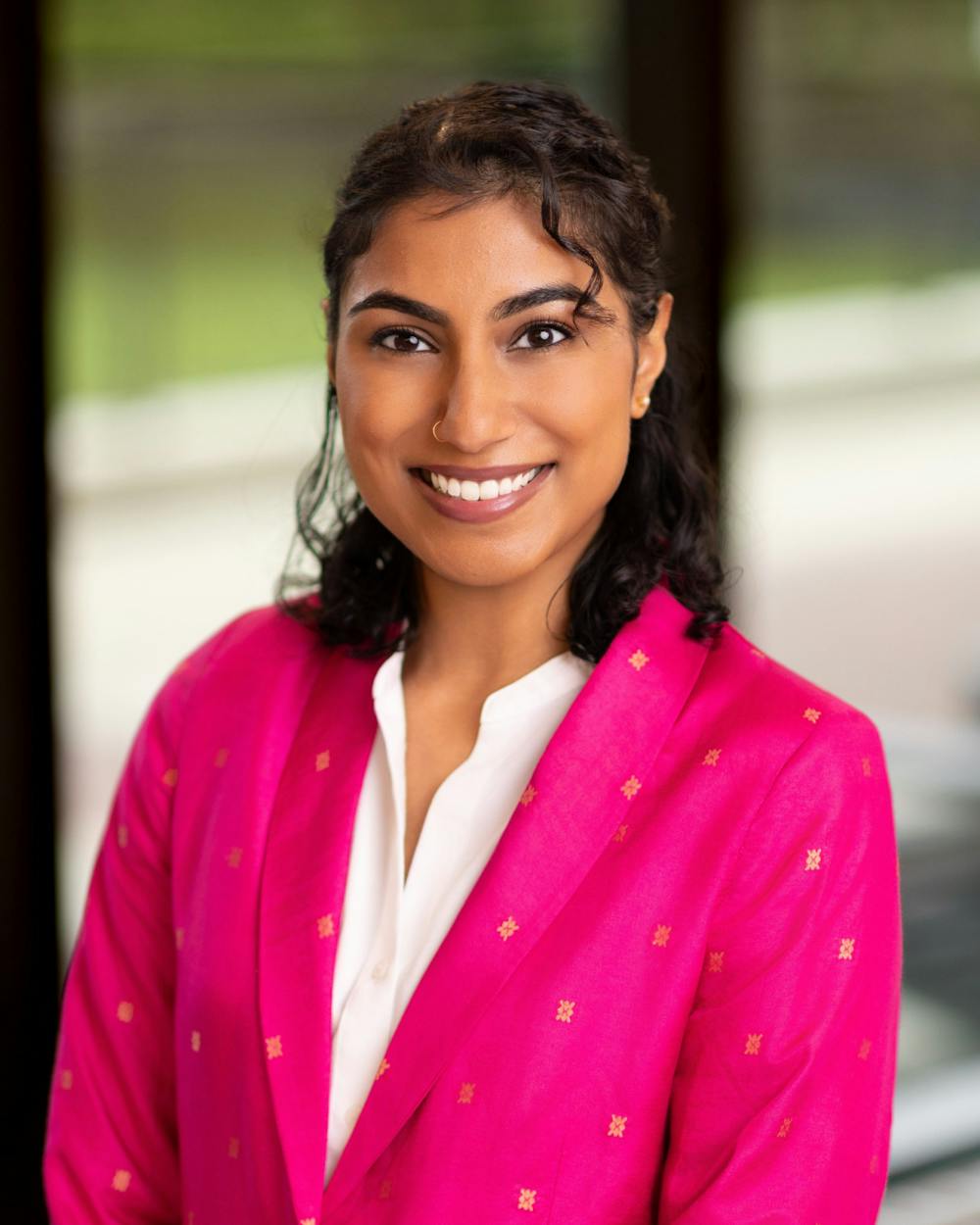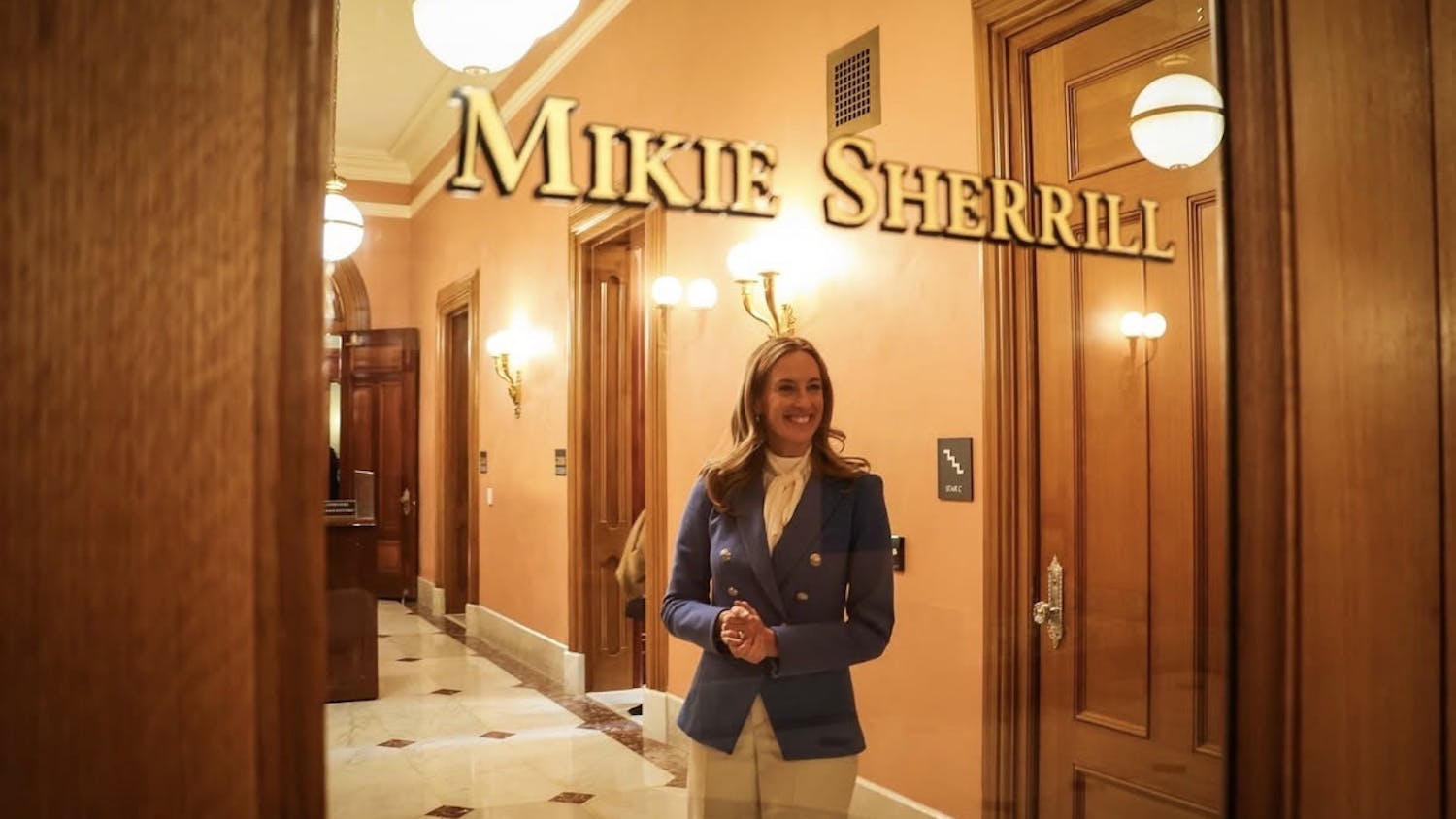Following Seton Hall University’s recent recognition as a Hispanic-Serving Institution (HSI), a new research initiative has taken shape at the Interprofessional Health Sciences (IHS) Campus under the leadership and instruction of Dr. Sindhu Chennupati.
The Culturally Harmonious Assessment and Intervention Language Lab, also known as the CHAI-Lingual Lab, is the newest initiative launched by Chennupati, who joined SHU’s School of Health and Medical Sciences this past summer.
The lab expands her work in bilingualism and culturally responsive approaches to speech and language pathology.
Chennupati's work centers on language development in multilingual children and families — a population that has grown significantly at SHU.
The CHAI-Lingual Lab aims to deepen the professional and cultural understanding of how identity, linguistic background and family dynamics shape early forms of communication.
Chennupati said she started her career in speech-language pathology in the D.C. area, where she worked with many diverse and multilingual families, particularly South Asian families.
“I noticed that much of what I’d learned in graduate school didn’t align with the cultural expectations I saw in practice,” Chennupati said. “We were taught to encourage parents of late talkers to get on the floor and follow their child’s lead—but that doesn’t reflect how South Asian parents interact with their children.”
Chennupati’s experience in the field now shapes the foundation of the CHAI-Lingual Lab.
The lab is developing new research protocols to help parents and families support their children’s speech development in ways that reflect their traditions and cultural beliefs. The work has already begun to attract students who are interested in speech and language pathology and in rethinking long-standing assumptions and practices in the field.
Graduate student Victoria Marques currently works under Chennupati at the CHAI-Lingual Lab as a research assistant. Marques is bilingual and a first-year graduate student who personally identifies with the mission of the lab.
“My research interests are in bilingualism—both of my parents are from Brazil, so I grew up speaking Portuguese at home,” Marques said. “Being Brazilian and bilingual have always been a significant part of my identity—learning the differences in language development specifically in bilingual children has helped me understand the impact that it has on different families.”
For students like Marques, the CHAI-Lab offers an immersive research opportunity that combines personal experiences with cultural and linguistic identities and hands-on clinical training.
Caryn Grabowski, chair and program director of the Department of Speech-Language Pathology, shared her insights on the impact and relevance of the CHAI-Lingual Lab.
“In order to advance science and healthcare, we have to integrate culture and multilingualism into our work,” Grabowski said.“Too much of the existing clinical research relies on narrow, homogenous populations that do not reflect the distinct populations that we are called to serve.”
The mission of the lab reflects a broader pillar of SHU’s ideals.
“At a place like Seton Hall where we focus on servant leadership and preparing students to be global leaders that drive mission, our research must incorporate effective and evidence-based ways of helping everyone we serve,” Grabowski said.
Grabowski’s perspective underscores why the CHAI-Lingual lab has become an integral part of both the department and university. As SHU continues to work towards becoming a more inclusive and accessible institution of higher-education, the need for research that reflects the student body and the surrounding communities it serves continues to grow.
The CHAI-Lingual lab is still in its early stages, but its goals are ambitious. Chennupati encourages all students, regardless of their majors or academic backgrounds, to take part in this research opportunity.
Beginning in the spring 2026 semester, Chennupati will offer a speech and language-pathology class on the South Orange campus for students interested in exploring multilingual development and culturally aware approaches to research and clinical practice. All SHU students interested in pursuing their own research question related to bilingualism are invited to join the lab.
Angela Alvarez is a writer for The Setonian’s New Section. She can be reached at angela.alvarez1@student.shu.edu.





